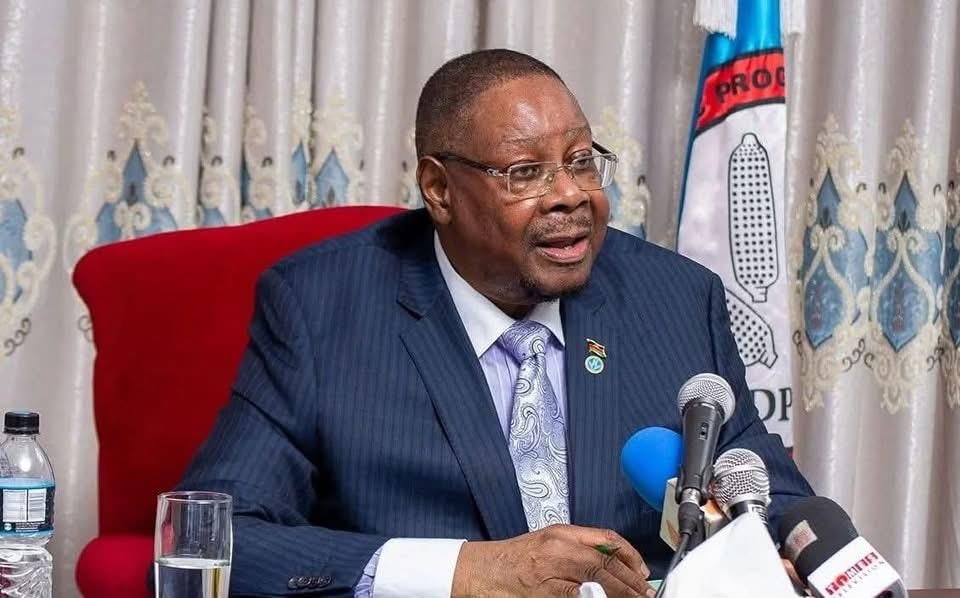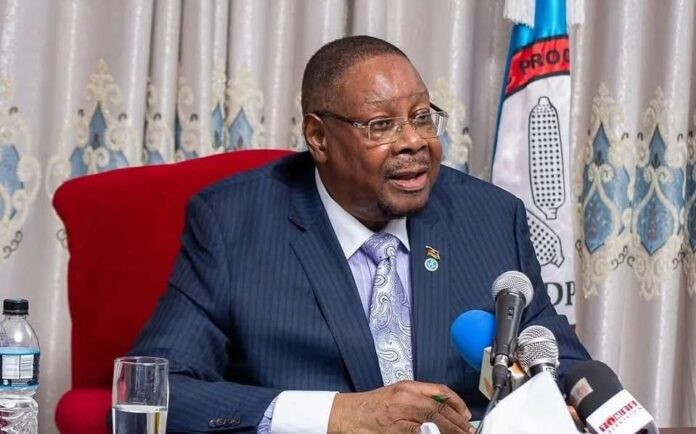By Burnett Munthali
Former President of the Republic of Malawi, Professor Arthur Peter Mutharika, has delivered a passionate and stirring national address, highlighting the pressing issues facing the nation under the current administration and offering his vision for a path forward. Speaking as the leader of the Democratic Progressive Party (DPP) and its presidential candidate for the 2025 elections, Mutharika struck a tone of urgency and hope, calling on Malawians to rise together to reclaim the country’s dignity and prosperity.
From his residence in Mangochi, Mutharika addressed the nation’s most critical challenges, focusing on the worsening hunger crisis, economic collapse, and the erosion of democracy and freedoms. His speech was both a critique of the current leadership and a rallying cry for unity and change.

A nation in crisis: Hunger and food insecurity
Mutharika began by acknowledging the suffering endured by millions of Malawians, particularly the 5.7 million people facing acute food insecurity between October 2024 and March 2025. He described the situation as the worst hunger crisis in a decade, lamenting the fact that four out of every ten children in Malawi suffer from stunting due to chronic malnutrition.
He laid the blame squarely on the Affordable Input Program (AIP), which he described as riddled with corruption and incompetence. He cited the infamous “butchery fertilizer deal” and the skyrocketing price of fertilizer—now at MK119,000 per bag—as emblematic of the program’s failure. In contrast, Mutharika pointed to the DPP’s Farm Input Subsidy Program (FISP), which he credited with eradicating hunger during his administration.
“Our farmers had affordable and reliable access to inputs under my government,” he said, emphasizing that competent leadership can restore food security and dignity to Malawians.
An economy in decline
Turning to the economy, Mutharika painted a grim picture of skyrocketing prices, forex shortages, and fuel scarcity. He highlighted how these economic woes are crushing businesses and families alike. He shared the story of a young engineer in Blantyre who, despite his qualifications, is forced to sell goods on the streets to make ends meet—a story, he said, that mirrors the struggles of countless Malawians.
Under his leadership, Mutharika claimed, the economy was stable, basic commodities were affordable, and opportunities for businesses and young people flourished. He promised to revive this economic stability, create jobs, and ensure that every Malawian can live with dignity once again.
The fight for democracy and freedoms
Mutharika expressed grave concern over what he described as the erosion of democracy and freedoms in Malawi. He accused the current government of turning the country into a police state, citing incidents of arbitrary arrests, suppression of journalists, and the violent dispersal of peaceful protests.
He recounted the recent shooting of Honorable Brenda Banda, a DPP member, during a peaceful gathering, describing it as a clear act of tyranny. He also criticized the voter registration process, alleging deliberate attempts to disenfranchise Malawians. “The DPP is committed to safeguarding the integrity of the upcoming elections,” he declared, vowing to protect the constitutional right of every Malawian to vote.
A call for unity and action
Mutharika’s address was not just a critique of the current administration but also a call to action. He urged Malawians to stand together and demand accountability from their leaders. “Our democracy, economy, and food security are under threat, but we have the power to change this,” he said.
He assured the nation that the DPP is ready to lead Malawi out of its current crisis. He emphasized the importance of the 2025 elections as an opportunity to restore hope, dignity, and progress.
“To the ruling Malawi Congress Party (MCP), let this be a warning: your incompetence and corruption have pushed Malawians to the brink, and they will no longer remain silent,” he said. “To my fellow Malawians, let us rise together, cast our votes, and reclaim the Malawi we deserve.”
Mutharika concluded his address by invoking a blessing for the nation, reiterating his commitment to restoring food security, stabilizing the economy, and protecting democracy.
A nation awaits change
Mutharika’s national address has resonated deeply with many Malawians, who are grappling with the challenges he described. Whether his message will translate into widespread support at the ballot box remains to be seen, but his critique of the current administration and vision for the future have reignited discussions about the direction Malawi must take.
As the 2025 elections approach, the former president’s call for unity and decisive leadership will likely shape the political landscape in the months ahead.



